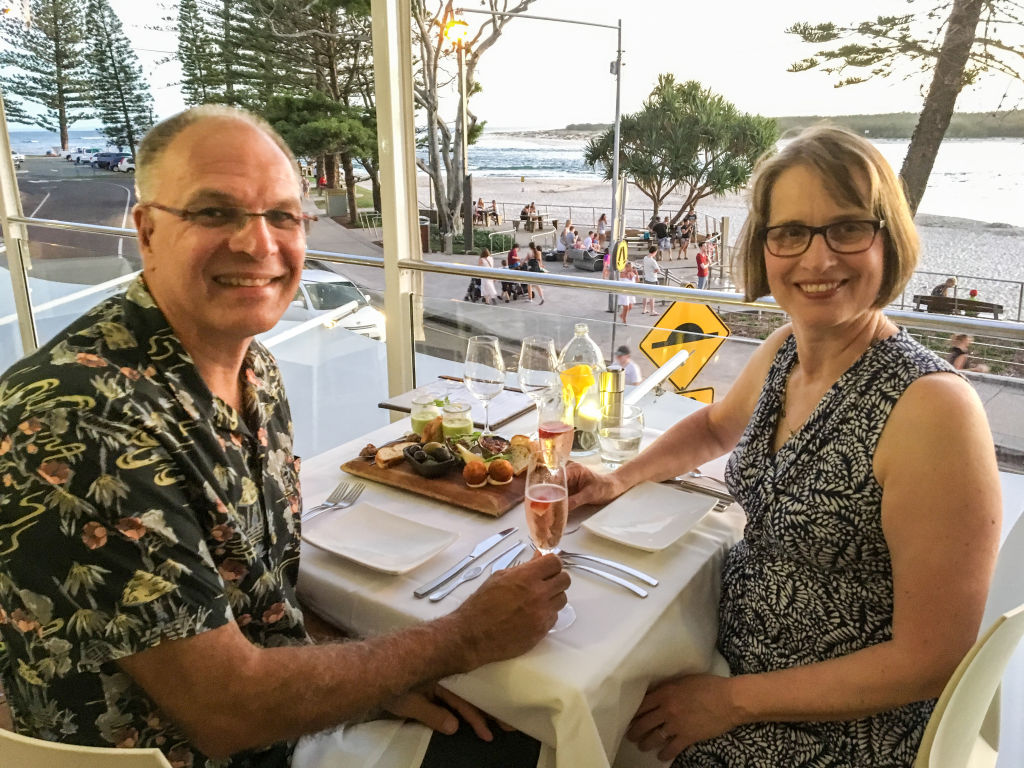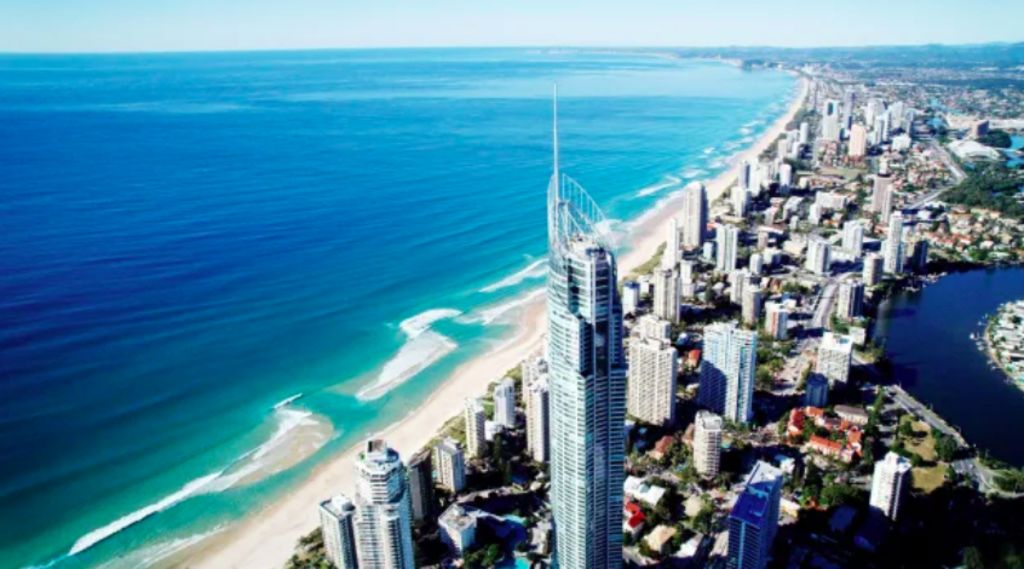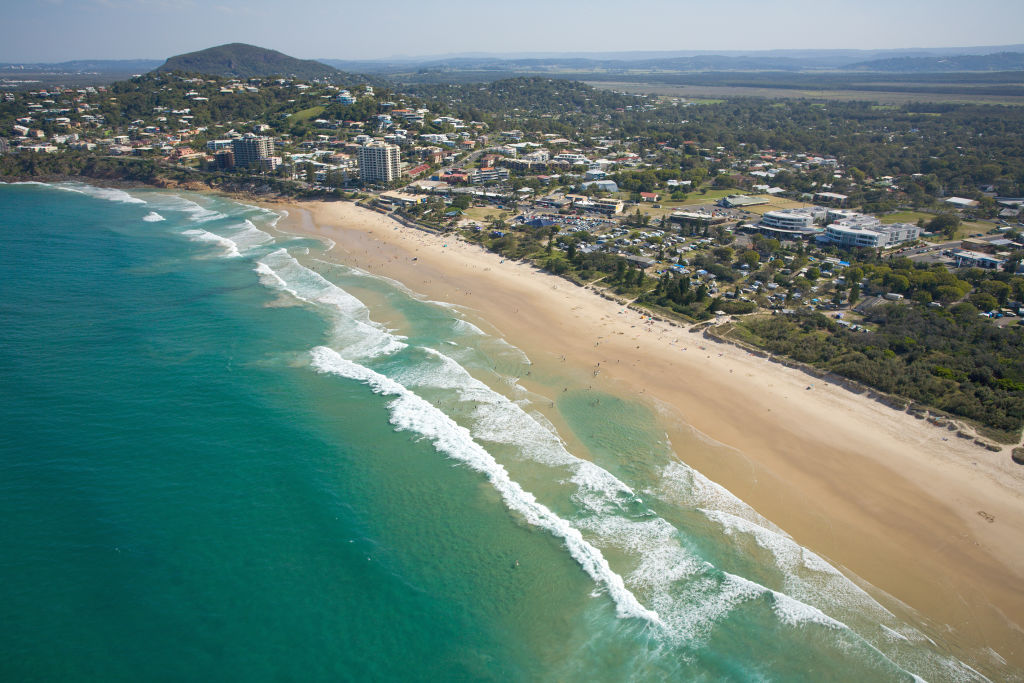The Sydney investors who can't get to their Queensland properties, or holiday in them

Sydneysider Ross Wheatley has always loved his holiday home on the Sunshine Coast for time off at the beach, and to earn income from short-term tourist rentals during the rest of the year.
But now the closed border between NSW and Queensland has stymied any plans for trips north and his unit in Caloundra is lying empty, bereft of other holidaymakers, too.
“I’m a self-funded retiree but we’re not getting any income from the property in this climate,” said Mr Wheatley, 64, a semi-retired institutional investor advisor who lives with his wife Barbara, 63, a retired physiotherapist in Beecroft.
“The tourist market dried up completely since mid-March and all of our bookings were cancelled.
“It looks like we’ve lost everything until mid-September so it’s a bit of a stretch for us. There are literally hundreds of tourist accommodation units in Caloundra and they’re all sitting empty. They rely on visitors from NSW and Victoria coming up during the winter.
“I understand the health issues, but it’s very hard. With the reduced number of cases, the government should be looking at the border closure again.”

It’s an appeal that’s being repeated up and down the Queensland coast, in all the big holiday spots from the Gold Coast to Port Douglas as the restrictions still in place from the COVID-19 pandemic continue to decimate the holiday industry.
“Those areas that are the hardest hit will be those that rely on tourism and hospitality, like south-east Queensland,” said Domain senior research analyst Dr Nicola Powell.
“We’re now seeing many properties changing from holiday lets to the long-term residential market, but some landlords who don’t have a cash flow are now considering selling.”
As a result, the Gold Coast currently has 5.5 per cent of property listings classed as “distressed” or urgent sales on Domain listings – compared to other areas below 1.1 per cent – as the worst-hit region in Australia.

Latest figures also show the Fraser Coast suffering with 4.9 per cent of listings classified as urgent, while Bribie Island at Moreton Bay has 4.3 per cent and the Whitsundays 4 per cent.
On the Sunshine Coast, the situation is dire, says Sarah Wilson, property manager of the Caloundra Holiday Centre, which has 170 holiday let properties.
“Usually, we have a lot of southerners from NSW, Victoria, Tasmania and New Zealand coming for the warmer weather now, but they can’t with the border closed,” she said.
“About 85 per cent of our properties have been vacant during March and April and May, and that would have been 100 per cent if it weren’t for the bookings from essential workers. Some of our southern visitors have been coming for 20 to 30 years, so we’re really hoping the border will open soon.”
AirDNA, an organisation that tracks Airbnb listings and activity, reports that weekly revenue plummeted 54 per cent on the Gold Coast from March 1 to April 26, and 57 per cent in Brisbane. Cancellation rates for July are at 30 per cent. Airbnb didn’t respond to calls and emails seeking comment.

Reuben Schwarz, co-founder of Airbnb tracking service BnBGuard, said operators are hurting. “We’ve seen that activity is generally about 80 per cent down in most areas and a lot of owners are turning Airbnb properties into long-term residential leases,” he said.
“Outside Sydney, the holiday areas of Queensland are doing the worst, places like the Gold Coast and Noosa which are badly affected by the closed border with NSW.”
But for those seeking more affordable homes in Queensland, whether permanent or for holidays, there might a glint of a silver lining later.
There could be a lot more on the market, with discounts, in October, believes Dr Powell.
“At the moment, we’re on a bit of a pause because of the mortgage-payment freeze,” she said. “But when that lifts at the end of September, many more of those property owners might end up trying to sell.”
We recommend
We thought you might like
States
Capital Cities
Capital Cities - Rentals
Popular Areas
Allhomes
More







